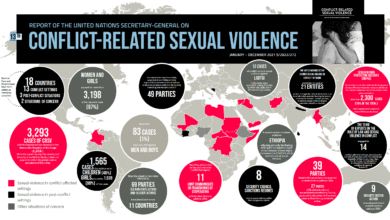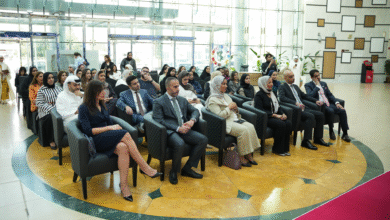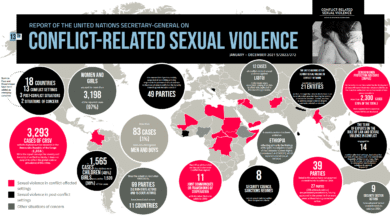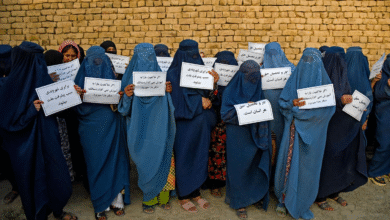Women and Girls of African Descent: Celebrating Contributions
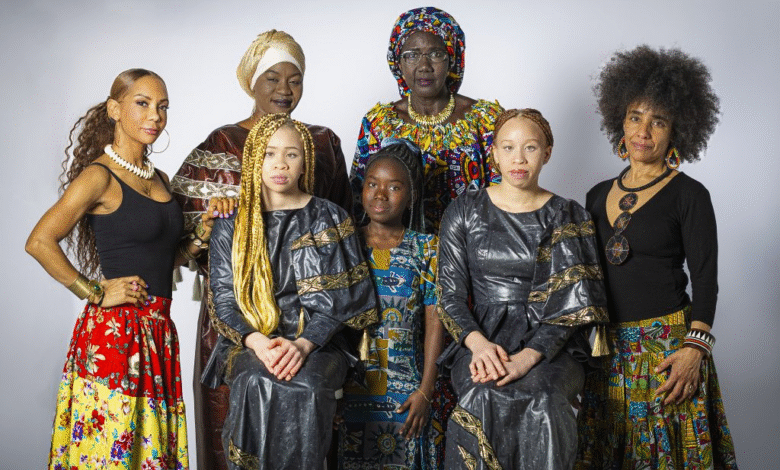
Women and girls of African descent play a vital role in shaping societies across the globe, recognized not only for their resilience but also for their immense contributions that often go uncelebrated. This Friday marks the inaugural observation of the International Day of Women and Girls of African Descent, a significant occasion established by the UN General Assembly to highlight both achievements and ongoing challenges faced by African women. Despite their strength and potential, these women face systemic barriers rooted in a legacy of racism and sexism, including alarming rates of maternal mortality that are exacerbated by structural inequalities. While these challenges are daunting, initiatives aimed at improving maternal health for women of African descent are gaining momentum, emphasizing the necessity of equitable healthcare solutions. As we celebrate African women on this important day, it is crucial to acknowledge their fight for recognition and justice, ensuring their voices are heard in the global dialogue.
The significance of the contributions made by women and girls of African heritage is profound and multifaceted. As we commemorate the rise of this historical observance, it serves as an opportunity to reflect on the resilience of Black women in the face of numerous adversities. Often viewed as formidable pillars within their communities, these individuals experience a unique intersection of challenges tied to race and gender, which has impacted areas such as health and socio-economic status. Initiatives promoting motherhood safety and cultural competency in healthcare have become vital for enhancing the lives of these remarkable individuals. By truly honoring their legacy and role as agents of change, we pave the way for a more equitable future for women across all global arenas.
Recognizing the Contributions of Women and Girls of African Descent
Women and girls of African descent have made significant contributions across various domains, from the arts to science, and everything in between. These remarkable individuals often lead innovative initiatives that drive social change in their communities. For instance, they have spearheaded movements advocating for racial and gender equality, emphasizing the unique experiences and perspectives that they bring to the forefront. Their resilience is a testament to their ability to overcome systemic barriers and racism, reflecting not only their strength but also their commitment to improving the lives of future generations.
In addition to social change, the contributions of these women are vital in economic development. Women entrepreneurs from African descent have been pivotal in creating jobs and fostering local economies, showcasing their potential as business leaders and innovators. By supporting and amplifying their initiatives, we can create a more inclusive economic landscape that recognizes and values the unique skills and insights they possess, ultimately benefiting society as a whole.
Frequently Asked Questions
What is the significance of the International Day of Women and Girls of African Descent?
The International Day of Women and Girls of African Descent, celebrated on July 25, recognizes the vital contributions of women and girls of African descent to society while also addressing the unique challenges they face, including the impacts of racism and sexism. This day serves to empower these women and highlight their roles as leaders and innovators in their communities.
What challenges are faced by women and girls of African descent regarding maternal health?
Women and girls of African descent experience alarming maternal mortality rates primarily due to the intersection of racism, gender discrimination, and socioeconomic factors. These challenges are often exacerbated by systemic inequalities rather than solely economic status, highlighting a critical need for comprehensive solutions in maternal health care.
How are contributions of African women celebrated on the International Day of Women and Girls of African Descent?
The International Day of Women and Girls of African Descent celebrates the achievements of African women by showcasing their roles as leaders and agents of change. The day emphasizes their innovative contributions in various fields and the importance of supporting their initiatives while recognizing the systemic barriers they overcome.
What solutions are proposed to improve maternal health for women and girls of African descent?
To enhance maternal health for women and girls of African descent, experts advocate for stronger health systems, investment in midwifery programs, and culturally sensitive training for healthcare providers. Improved data collection and community-engaged solutions, such as integrating traditional practices with modern healthcare, are vital steps toward addressing these disparities.
How can the global community support women and girls of African descent?
The global community can support women and girls of African descent by acknowledging their leadership roles and innovations. It is essential to invest in their solutions, elevate their voices, and work collaboratively to dismantle the structural barriers that hinder their progress, thus ensuring their full participation and recognition in society.
What role do traditional midwives play in improving health outcomes for women of African descent?
Traditional midwives play a crucial role in improving health outcomes for women and girls of African descent by integrating ancestral knowledge with modern practices. Their expertise can bridge gaps in healthcare access, particularly in remote areas, ensuring culturally relevant care and supporting accurate birth registration.
| Key Points |
|---|
| The first International Day of Women and Girls of African Descent is observed on 25 July 2025, as declared by the UN General Assembly. |
| The day recognizes both the contributions and challenges faced by women and girls of African descent due to racism and sexism. |
| Women and girls of African descent experience high maternal mortality rates, often linked to structural inequality rather than economic factors. |
| Solutions proposed include investment in health systems, midwifery programs, and culturally sensitive training for healthcare providers. |
| The theme emphasizes women and girls of African descent as leaders and agents of change, rather than merely beneficiaries of aid. |
Summary
Women and girls of African descent are celebrated not only for their immense contributions to society but also for the unique challenges they face due to the intersection of racism and sexism. The observation of the International Day on 25 July 2025 highlights the urgent need to address these challenges while empowering these women to be leaders and change-makers in their communities. As we move through the Second International Decade for People of African Descent, it is crucial that global efforts continue to elevate the voices of women and girls of African descent, ensuring that their needs and potential are recognized and valued.

